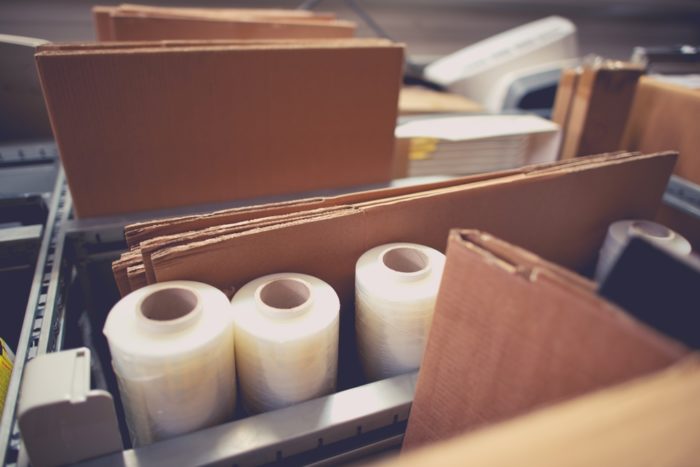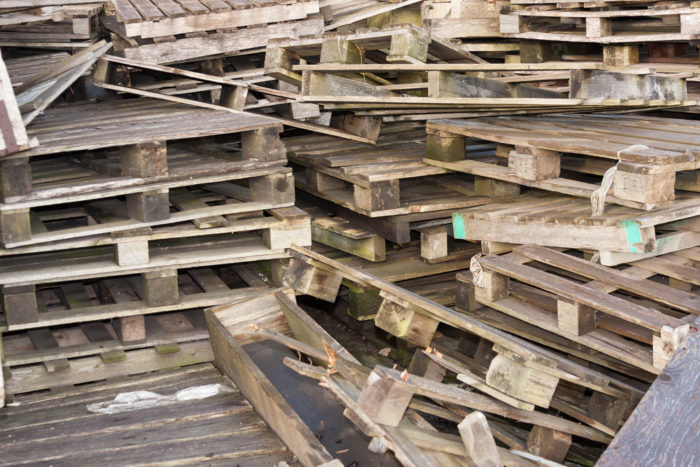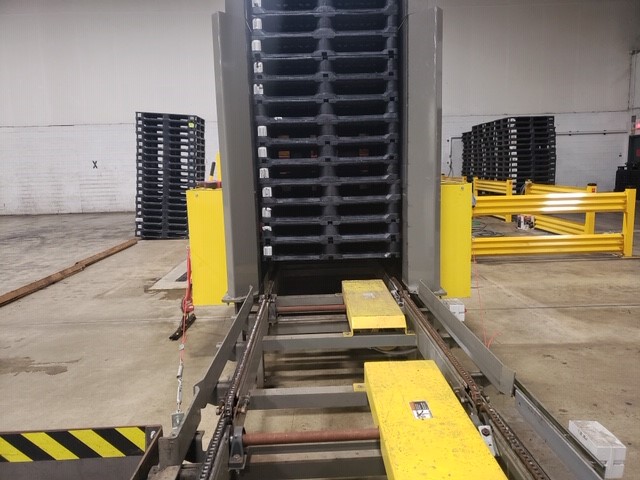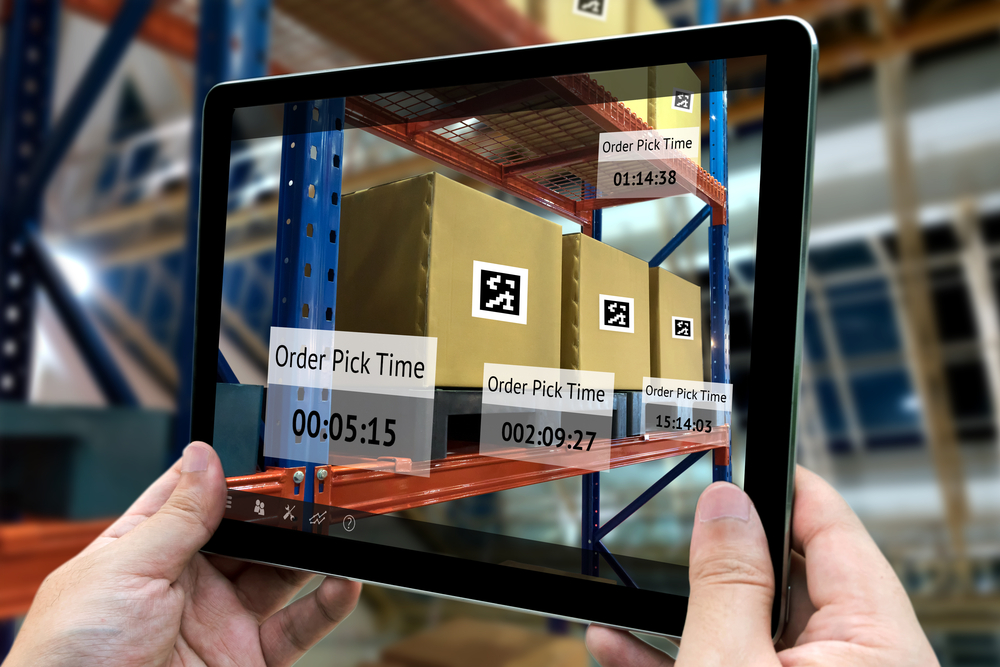Aftermarket logistics is a phrase subject to some confusion. Auto parts dominate many people’s understanding of the term aftermarket, and while brake, supercharger, and spoiler kits can be a part of aftermarket logistics, an aftermarket logistics strategy is about more than automobile parts. The term is actually nearly synonymous with the reverse supply chain.
Aftermarket logistics is concerned with what happens to products and materials after they’ve reached the point of sale, and, until approximately the past decade, aftermarket logistics strategies were concerned wholly with product returns. However, a growing interest in reducing waste has expanded the focus to packaging and shipping materials. A well-developed aftermarket logistics strategy can arrange for the reuse or recycling of product packaging, which ultimately improves supply chain efficiency and brings cost savings while creating a more sustainable, ethical supply chain.
Defining an Aftermarket Logistics Strategy for Manufacturers
The discussion of aftermarket logistics is generally dominated by strategies for retailers managing product returns. The growth of globalization, the online marketplace, and direct shipping to the consumer has complicated this process. It may be difficult for companies to honor a return policy for a product that was sold through an online retailer that they have no direct dealings with. Retailers often find that it is uneconomical to arrange returns when suppliers may be overseas and when there is no credit available for damaged or defective products.
When it comes to the equipment and packaging used to ship truckloads of products to retailers, a well-developed aftermarket logistics strategy can save money and reduce waste.
For product manufacturers, aftermarket logistics strategies are different. Single items or individual lots being returned are dwarfed by a product output of potentially hundreds of thousands of individual products. The return of damaged or defective products may be a hassle, but the number of these instances is small and the equipment needed to arrange for a return is minimal. As a result, the return of these products is best handled individually on a case-by-case basis and a hard-and-fast procedure for aftermarket product returns might actually be counterproductive. However, when it comes to the equipment and packaging used to ship truckloads of products to retailers, a well-developed aftermarket logistics strategy for reusing or recycling materials can save money and reduce waste.
Aftermarket Logistics Strategies for Shipping Materials
 Consumer packaged goods can be handled and shipped in large quantities thanks to a variety of packaging materials and specialized pieces of equipment. We don’t often think about this packaging, but it is, in fact, what makes modern life possible. It most frequently includes:
Consumer packaged goods can be handled and shipped in large quantities thanks to a variety of packaging materials and specialized pieces of equipment. We don’t often think about this packaging, but it is, in fact, what makes modern life possible. It most frequently includes:
- Product Packaging: This isolates products from the surrounding environment and is often made of cardboard, plastic, or a combination of the two. While this packaging cannot be directly reused, it can be collected and recycled.
- Product Cartons: These boxes contain multiple individual products and help to prevent damage to the products during transportation. Usually made of cardboard, cartons can be recycled and remade into new cartons or other cardboard items that are suitable for reuse in a variety of roles.
- Plastic Wrap: Plastic wrapped around product cartons holds them together so that they can be moved as a unit on a pallet. While plastic wrap is recyclable, there are relatively few recyclers that are set up to do this and few programs collect it for recycling. However, it may be worth investigating the feasibility of recycling plastic wrap on a case-by-case basis.
- Shipping Pallets: Shipping platforms carry stacks of product cartons. Pallets are available in a variety of sizes and are made from a variety of materials. Because they directly interface with heavy equipment, they are sturdier than other shipping materials and can be reused as-is. Once a pallet has reached the end of its lifespan, its recyclability is dependent on the type of material it is made from. Wood pallets have limited recyclability, while plastic pallets can be directly recycled into another pallet.
While wood pallets are repairable and reusable–to an extent–they are not directly recyclable.
In the case of many of the items above, reuse simply isn’t feasible and recycling becomes the obvious alternative. For instance, there are usually recycling centers near a retailer that can collect and recycle plastic and cardboard and sell the result to packaging manufacturers far more cost-effectively than any manufacturer can reuse them. This system is already in place at most retailers.
Pallets, however, have not received the same treatment. While wood pallets are repairable and reusable–to an extent–they are not directly recyclable. Outside of very specialized circumstances, wood isn’t recycled. Moreover, since new single-use wood pallets are inexpensive, many companies are used to simply discarding used pallets rather than trying to reuse them. In other words, aftermarket logistics strategies haven’t been applied to pallets. The result has been limited adoption of logistics technologies that could potentially improve the efficiency of the entire supply chain.
Why an Aftermarket Strategy for Pallets Is Important
 The obvious advantage of an effective aftermarket logistics strategy specific to shipping platforms is the cost benefit of not having to purchase new shipping platforms for every load of products that goes out. There are also less obvious benefits. A reusable shipping platform can, for properly equipped businesses, provide automated data collection through GS1 standard barcodes or radio-frequency identification (RFID) that can reveal procedural lapses and inefficiencies. Addressing these can capture further savings by preventing rejected loads and by reducing product damage during transportation.
The obvious advantage of an effective aftermarket logistics strategy specific to shipping platforms is the cost benefit of not having to purchase new shipping platforms for every load of products that goes out. There are also less obvious benefits. A reusable shipping platform can, for properly equipped businesses, provide automated data collection through GS1 standard barcodes or radio-frequency identification (RFID) that can reveal procedural lapses and inefficiencies. Addressing these can capture further savings by preventing rejected loads and by reducing product damage during transportation.
For many manufacturers, however, it is impractical to arrange for the return of shipping platforms from distribution centers across the U.S. to a few manufacturing facilities or even a single production area. The personnel and equipment needed to implement this sort of aftermarket logistics strategy effectively form their own parallel business, which is an investment that many product manufacturing companies rightfully balk at. However, partnering with a specialized company offers the benefits of pallet reuse without the costly investment.
How Pallet Pooling Benefits Your Logistics Strategy
 Pallet management companies rent pallets to manufacturers as needed and take care of the logistics of retrieval and repair. A nationwide network of customers makes it possible for pooling providers to ensure that the supply chains they serve have minimal empty transportation legs. In essence, pallet pooling services allow their customers to contract out their aftermarket logistics strategy in order to enjoy the benefits of reuse without the upfront investment needed to develop a network solely to handle pallets. When manufacturers choose to contract with a pallet pooling provider that provides a high-quality plastic pallet, they enjoy further benefits as well.
Pallet management companies rent pallets to manufacturers as needed and take care of the logistics of retrieval and repair. A nationwide network of customers makes it possible for pooling providers to ensure that the supply chains they serve have minimal empty transportation legs. In essence, pallet pooling services allow their customers to contract out their aftermarket logistics strategy in order to enjoy the benefits of reuse without the upfront investment needed to develop a network solely to handle pallets. When manufacturers choose to contract with a pallet pooling provider that provides a high-quality plastic pallet, they enjoy further benefits as well.
Plastic pallets are more durable and are able to integrate GS1 and RFID technology directly into their structures.
Plastic pallets have a unitized, durable construction that doesn’t rely on fasteners or individual boards of wood. As a result, sections of a plastic pallet won’t break or pull free; this reduces potential causes of product damage in trucks and warehouses. It also makes it possible to track plastic pallets. While wood pallets can lose their serial numbers and other identification when a board separates from the pallet, plastic pallets are more durable and are able to integrate GS1 and RFID technology directly into their structures. With a plastic pallet pooling provider, manufacturers can enjoy the benefits of reusing their pallets without investing in specialized facilities and labor in order to maintain an internal pallet pool.
The iGPS pallet pool provides a high-quality plastic pallet equipped with GS1 standard barcodes and RFID technology that enables data capture and supports an informed aftermarket logistics strategy. To enjoy the benefits of a superior shipping platform, give our team a call at 1-800-884-0225, email a specialist at switch@igps.net, or visit our contact page.



